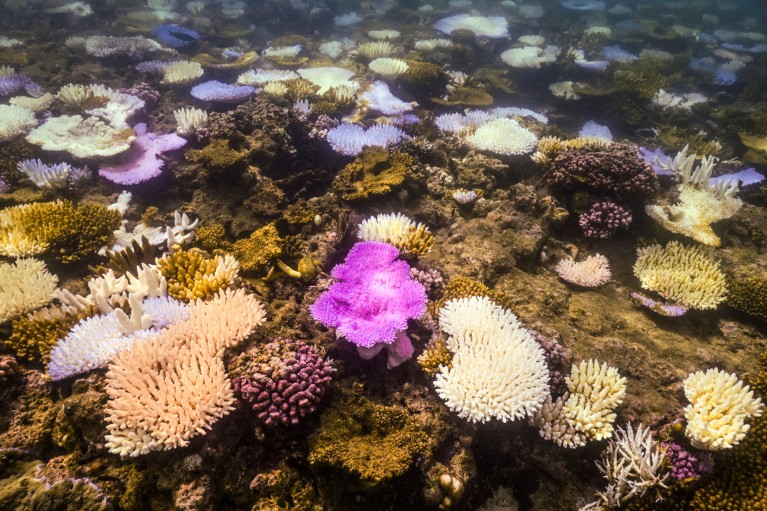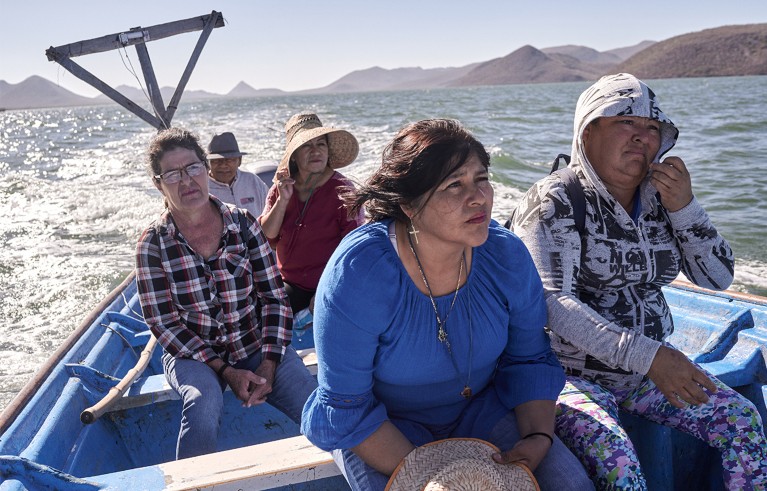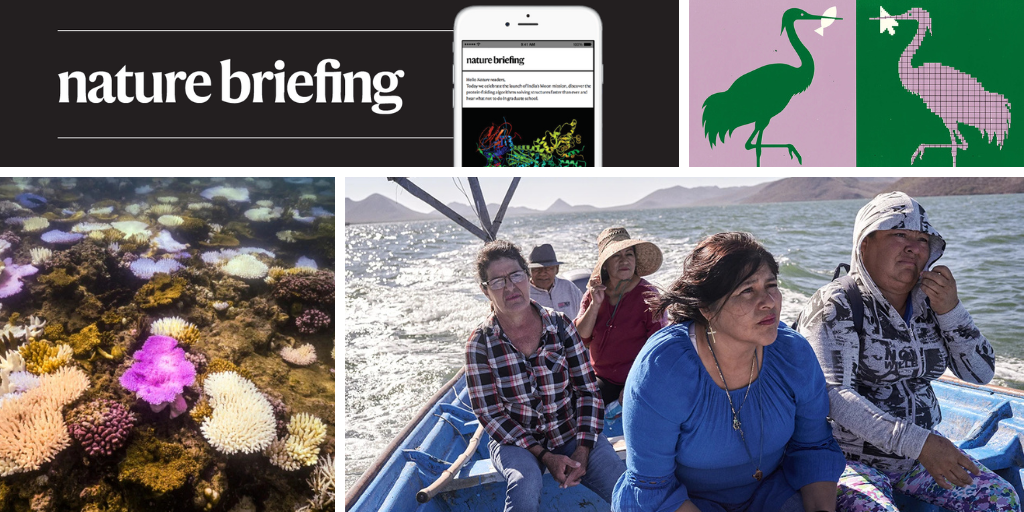
Vast expanses of coral in Australia’s Great Barrier Reef have died as a result of extremely high water temperatures.Credit: David Gray/AFP/Getty
News
The widespread decline of coral reef ecosystems, caused by surging global temperatures, marks the first time Earth has reached a climate ‘tipping point’, say researchers. In a report released yesterday, they say that without rapid action to curb greenhouse-gas emissions, other systems on Earth, such as dieback of the Amazon rainforest, will also soon reach planetary tipping points — thresholds for profound changes that cannot be rolled back. The report also points to positive tipping points — some of which, such as a shift to solar and wind power, are already in progress — that could result in runaway benefits for the planet. “We have the knowledge” to prevent breaching climate tipping points, says political scientist and co-author of the report Manjana Milkoreit. “What we need is a kind of governance that matches the nature of this challenge.”
Reference: Global Tipping Points report
News
The latest ‘red list’ from the International Union for Conservation of Nature (IUCN) highlights three species of Arctic seals at risk of extinction because of global warming, while more than half of bird species are in decline worldwide. Six species have been deemed extinct, including two Australian bandicoots. There are some conservation successes — green sea turtles (Chelonia mydas) have moved from ‘endangered’ to ‘least concern’ — but on the whole, the red list is “measuring something that tells you there’s something wrong; we have to act”, says the IUCN’s Jon Paul Rodríguez.
Feature
If you’ve ever used a map app to check for traffic or whether your bus is running late, then you’ve taken advantage of a ‘digital twin’: a virtual representation of the real world, which relies on real-time data. Now ecologists are increasingly using digital twins for biodiversity research. For example, the Crane Radar predicts your best chance of spotting migrating common cranes (Grus grus) across parts of Europe. River systems in Europe, China and Kenya are also getting the twin treatment. But, just like human twins, digital twins are a lot of work and require long-term investment.
Interview
After negotiations broke down and the chair of the talks resigned, the fate of a United Nations plastic-pollution treaty hangs in the balance. Among some countries, “there has been a lot of progress”, says plastic policy researcher Samuel Winton. But some nations that produce the raw materials of plastics — petrostates such as Saudi Arabia, Iran and Russia — “haven’t moved at all”. One way to progress might be for ambitious countries to agree amongst themselves, outside of a UN process, suggests Winton. “Not having a treaty agreed is not the worst-case scenario,” he says. “The absolute worst-case scenario is… a very weak treaty that addresses only the recycling and consumption of plastics, rather than limiting their production.”
Where I work

Melina Maldonado Sandoval is a fisher in Ohuira Bay, Mexico.Credit: Mahé Elipe for Nature
Melina Maldonado Sandoval (centre right), a fisher in the Lázaro Cárdenas Yoreme-Mayo community, helps a research centre to study the impact of industrial pollution on marine life in Ohuira Bay, Mexico. She and other local community members have founded the campaign group Aquí No (‘Not Here’) to fight the proposed construction of a nearby ammonia production and storage plant, which could devastate local marine life. “We will continue to defend our bay, tooth and nail, because it is our home, our medicine and our future,” she says. (Nature | 3 min read) (Mahé Elipe for Nature)


